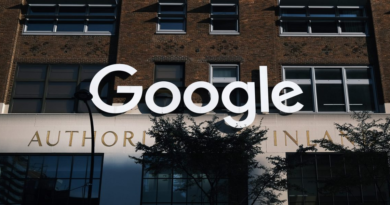SPAC king Chamath Palihapitiya: end of ZIRP era spells doom for unprofitable startups
Tech startups hopelessly addicted to Silicon Valley’s drug of choice face a reckoning now that they’ve been forced to quit cold turkey.
The end of the Federal Reserve’s zero-interest rate policy, or ZIRP, represents a “generation-defining economic regime change” for a sector hooked on cheap, plentiful money, according to billionaire venture capitalist Chamath Palihapitiya.
Loss-making firms must now either sober up, get control of their costs and stop burning cash or they won’t be around to profit from the $2 trillion-plus tsunami of government spending launched under President Joe Biden.
“The era of excess, abundance and zero-interest rate policy has come to an end,” wrote Palihapitiya in his annual letter to Social Capital’s limited partners published on Tuesday.
“Last year, we likened it to ending the best party in town—but instead of simply turning on the lights, the past year has been more akin to getting cold water thrown in our faces.”
That means founders will have to deliver tangible bottom-line earnings both before and, more importantly, after accounting for running costs of line items like interest, taxes, depreciation and amortization.
Only then can they survive long enough to unlock opportunities on the horizon offered by the $1.2 trillion Bipartisan Infrastructure Law and the $738 billion Inflation Reduction Act, he argued.
“To founders, make no mistake. A company’s success will be judged by its profits and market leadership — not faux ‘profitability’ metrics or your ability to latch your company onto the latest trend or fad,” he wrote.
Poor post-SPAC performance for companies he sponsored
His comments are noteworthy in part because Palihapitiya himself is one of the investors most associated with the very excesses in Silicon Valley he cited.
Palihapitiya earned the nickname “SPAC king” for bringing a number of high-risk startups to market via his Special Purpose Acquisition Companies.
The former Facebook executive used his own personal branding as a savvy investor to launch the SPAC gold rush with his October 2019 deal to bring Richard Branson’s space tourism startup Virgin Galactic to market.
Unfortunately, most of the companies he sponsored have performed poorly.
Virgin Galactic, Opendoor and SoFi all trade well below the $10 per share he charged his SPAC investors.
The worst company he brought to market, Clover Health, failed to disclose it was the subject of inquiries by the Justice Department and its shares are currently worth less than 80 cents each. Palihapitiya himself is now the target of a shareholder lawsuit.
In September, he was forced to unwind his largest ever SPAC, Social Capital Hedosophia VI, which raised 1.15 billion in venture capital as well as another smaller vehicle $460 million in size, and return the money to investors.
In his letter, Palihapitiya blamed the party ending on a “perfect storm of pent-up demand colliding with a supply shock” following the pandemic that unleashed 40-year highs in inflation.
The Fed’s resulting withdrawal of ZIRP hurt loss-making startups in particular since higher borrowing costs automatically raise the discount rate applied by investors to value future cash flows.
“The mathematical truth of high interest rates is that it renders your company valueless,” he wrote.




